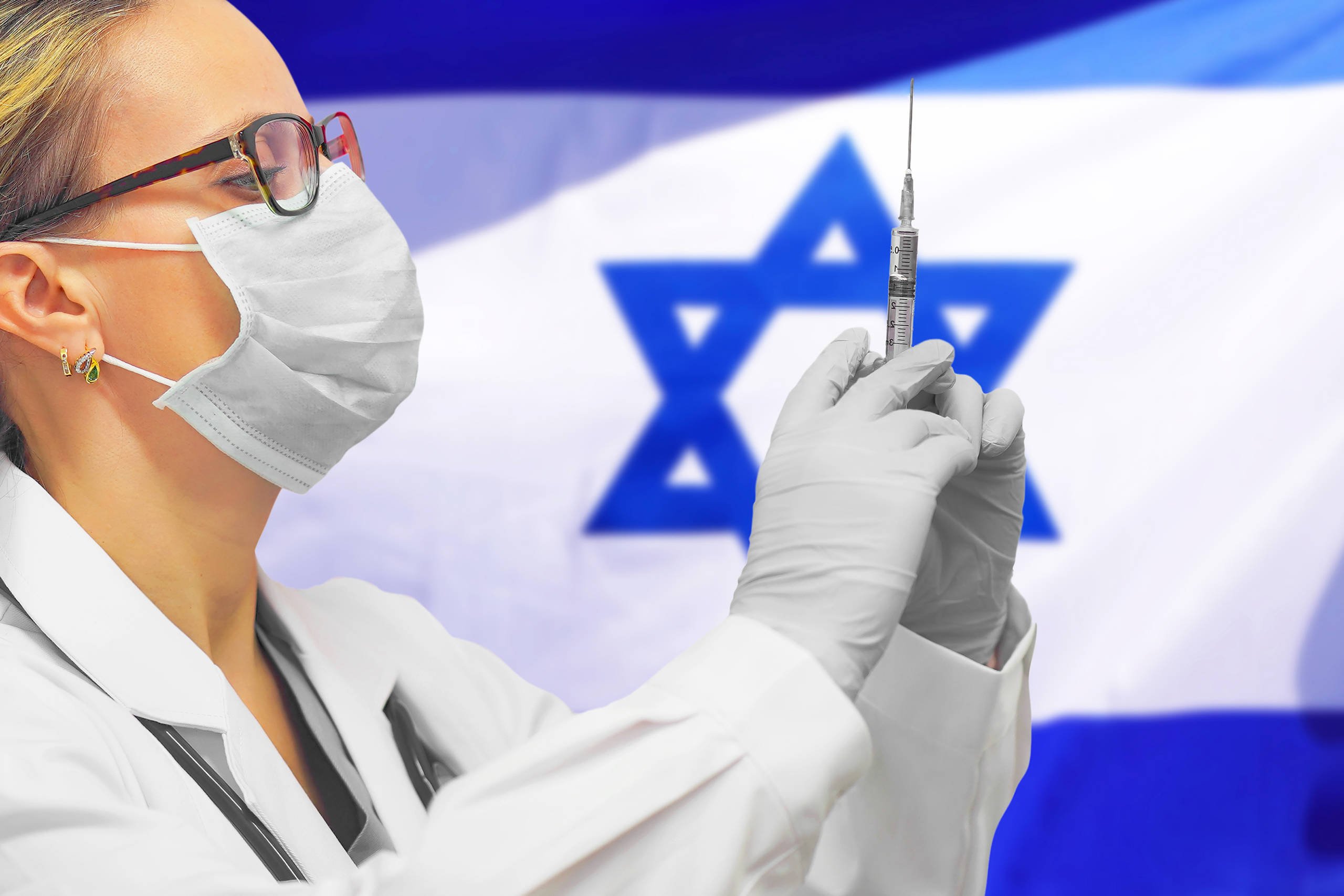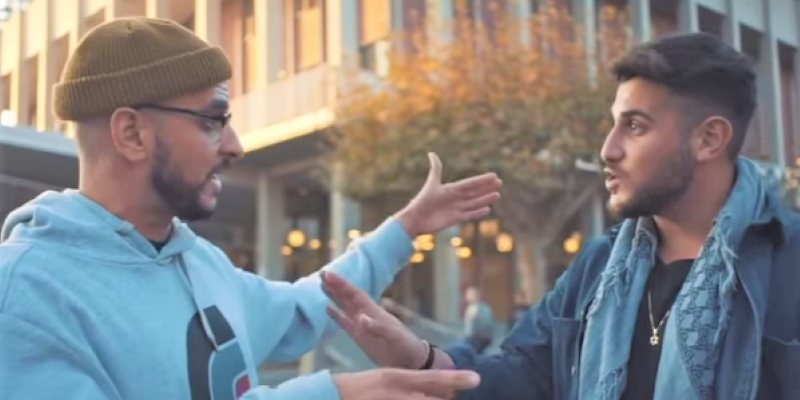Rudy Rochman is an IDF veteran spearheading the battle on American campuses against BDS, anti-Semitism, and the demonization of the Jewish state.
By Joseph Wolkin, World Israel News
When Rudy Rochman received his high school diploma, he wasn’t preparing to take the summer off prior to college. He wasn’t like the other students with whom he was graduating. Rochman was heading to Israel, where he would join the Israel Defense Forces (IDF) as a paratrooper.
When his service was complete, he headed to UCLA in 2013, where he began a whole new fight – one he had been preparing for long before his basic training, before transferring to Columbia University, which has been a hotbed of anti-Semitism as of late.
At Columbia, he started a chapter of Students Supporting Israel (SSI). While he is no longer connected with the organization, he continues his pro-Israel activism as he completes his MBA at Israel’s IDC Herzliya.
Born in France, Rochman is now one of the biggest influencers in the fight against the Boycott, Divestment and Sanctions (BDS) movement and Students for Justice in Palestine (SJP). He wants to educate those who have been told that Jews are the enemy and he is giving students throughout America valuable tools to stand up for themselves unlike any individual in our lifetime.
Q: What inspired you to get involved in Israeli advocacy?
Rochman: I was born in France. At the age of three, I moved to Israel and at the age of five, I moved to Miami. I grew up moving around the world my entire life. What got me involved in Israeli advocacy – I personally consider it Israeli activism because I see myself as a player for change in Jewish history – was an experience that I had at the age of seven, which was my first experience of anti-Semitism.
Because I grew up moving around and because my grandparents were born and raised in different countries – Morocco, Algeria, Poland and Belgium – and then growing up in Miami, where everyone identifies as something else other than American, I had an identity crisis growing up.
Going to high school, I was the French kid. In France, I was the American cousin and I’m also Jewish, Israeli and all these different identities. Apparently, who I am depends on who is asking me that question and not what I really feel.
‘No Jews on My Bus’
Q: What was the experience you had when you were seven years old?
Rochman: I took a trip to London with my mother and my younger brother. We got on a red bus to do a tour of London.
The driver noticed my mom had a shirt with Hebrew writing on it. He asked my mom, “Is that written in Jewish?” My mom said, “No. It’s written in Hebrew if that’s what you’re asking.” He asked if we we’re Jews and said, “I don’t want any Jews on my bus. You have to get off.” My mom said “We’re not getting off the bus.” She’s a strong Jewish woman. He got up, grabbed my mom and threw her off the bus.
That moment changed my life. It didn’t matter where I was born or grew up. I was a Jew. Being a Jew, it led me to ask even deeper questions, especially as a Levite, like why am I even called a Jew. Where does Judaism even come from?
The reality is we have a split among the nations and the lost civilization that existed was Judea, and that’s why we’re all called Jews today. But if the civilization today is called Israel, which is the proper name of the land and people, that makes us all part of Am Yisrael, the Nation of Israel.
From that moment, I identified as Israeli. The second thing that moment did for me was it made me promise that whenever I see anti-Semitism, I have to be prepared to deal with it physically, emotionally, intellectually and even ideologically.
With time, my connection, passion and realization of who I am and what I need to do evolved. When I finished my service, I went to UCLA and that’s where I began confronting anti-Semitism on campuses. I transferred to Columbia and I started a movement there.
Q: How did you start your social media campaign of spreading Israeli activism to the point where you’re one of the most vocal Jewish people on just about every social network?
Rochman: My first year at UCLA was the first year SJP tried to push for BDS at a UC [University of California] campus. I remember fighting against BDS and we got it turned down. I remember seeing tears in my friends’ eyes, saying we won. But that’s when I realized we hadn’t won at all.
The point of BDS isn’t to pass a resolution because the resolution does very little since the school won’t divest from Israel. The problem is that it’s even mentioned. This resolution is being talked about in an intellectual space that represents the future political and ideological class of the next generation, being disseminated to that class as a factory of ideas, which is being taught that Israel is bad.
They’re not “pro-Palestinian” because [they don’t mention it] when Palestinians die by the thousands in Syria and the hundreds of thousands in refugee camps; they only talk about Palestinians when it comes to Israel. I said, “What are the Jews doing?” The only thing I saw is let’s talk to our own communities in Hillel and Chabad, and let’s not do anything about it. I was frustrated by how weak the pro-Israel movement is.
I founded a grassroots movement at Columbia, which eventually grew to around 50 campuses today. My activism evolved to create a movement that sought to do three things: empower, narrate and protect.
I started making videos to expose people who are anti-Semitic and a lot of people started following these videos, feeling empowered and I realized I was onto something. Things started to go viral and I’ve continued it.
Find the Problems and Take Them On
Q: What is the biggest challenge right now for yourself and the different pro-Israel groups in America?
Rochman: When it comes to organizations, they need to remember they’re resources for students and not the other way around. Student groups aren’t the organizations.
All of these organizations need to re-center themselves. The biggest challenge for students fighting against anti-Semitism is they have to first and foremost understand the campus they are in – what are the problems, who are the enemies and who are their allies?
Then, they have to focus on empowering the Jewish students and allies there in order to be ideologically and intellectually strong to answer back. You need to be able to counter anti-Semitism, and a lot of groups don’t know how to.
We weren’t taught how to be Jews in practice – how to stand up ideologically and intellectually in such spaces – whereas if you look at other minority communities, they are conditioned to be ready for that situation.”
Q: Is the language used by SJP and other anti-Israel groups the reason why students are often influenced by them?
Rochman: It’s one of the big reasons. They build coalitions with other minority groups and they go to their events. They focus on the way they do media. They are focused on pushing the agenda of delegitimizing Israel’s right to exist and demonizing the Jewish people.
They figured out how the game is being played and they’re playing the game. I can only be mad at my own side for not doing our job.
Q: What’s your advice for college students and people in general fighting anti-Semitism/Zionism?
Rochman: First and foremost, empower yourself, and that means educate yourself. Rid yourself of fear and combat anti-Semitism, no matter where it exists. Create coalitions on campus and once you’ve reached that level of empowerment, spread that light and empower others.
I might be a stronger character in this fight, but a true leader doesn’t create more followers. I want to create leaders.

HELP ISRAELIS BATTLE CORONA!
Donate to the Corona Emergency Relief Fund. Coronavirus has taken a huge toll on the people of Israel. The poor, elderly and ill are most vulnerable.
Israeli soldiers, security officers and medical care providers operate under great danger and risk to life.
Over 1 million Israelis are out of work. Many cannot make ends meet. We provide financial aid, food, medical supplies and more. Funds are distributed where needed most. The time to act is now!
United with Israel extends a special note of appreciation to the Genesis Prize for their generous support.


